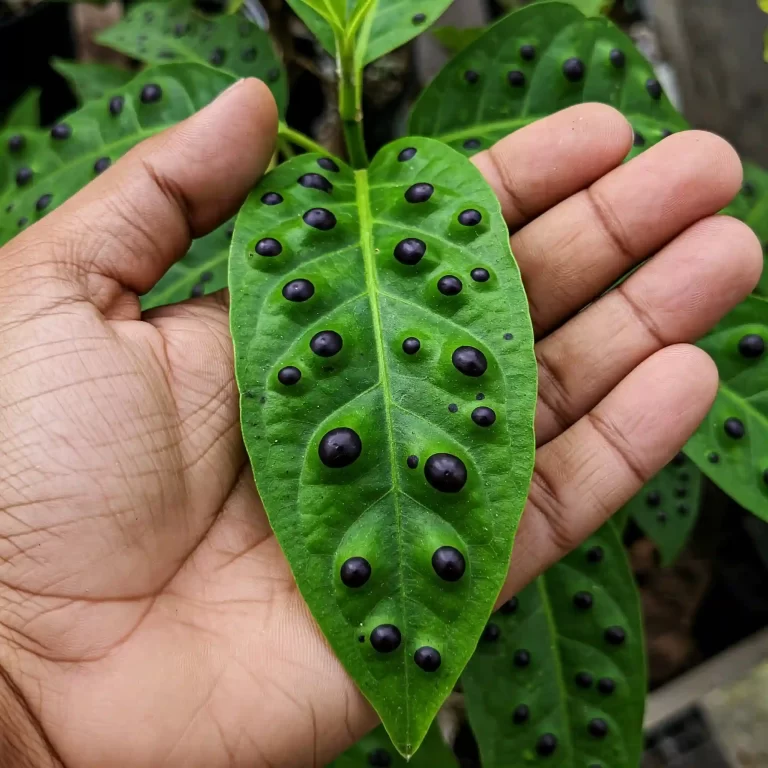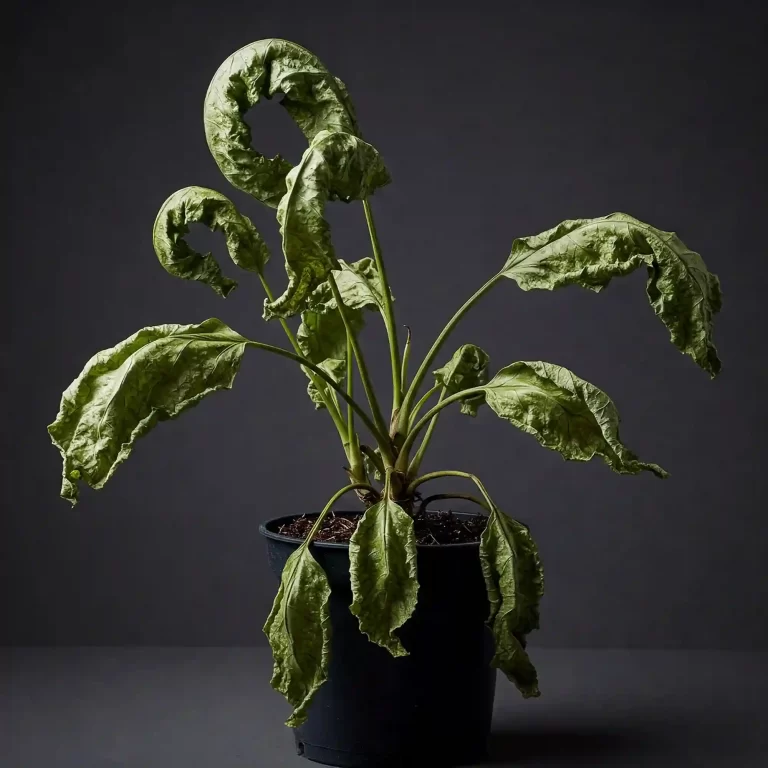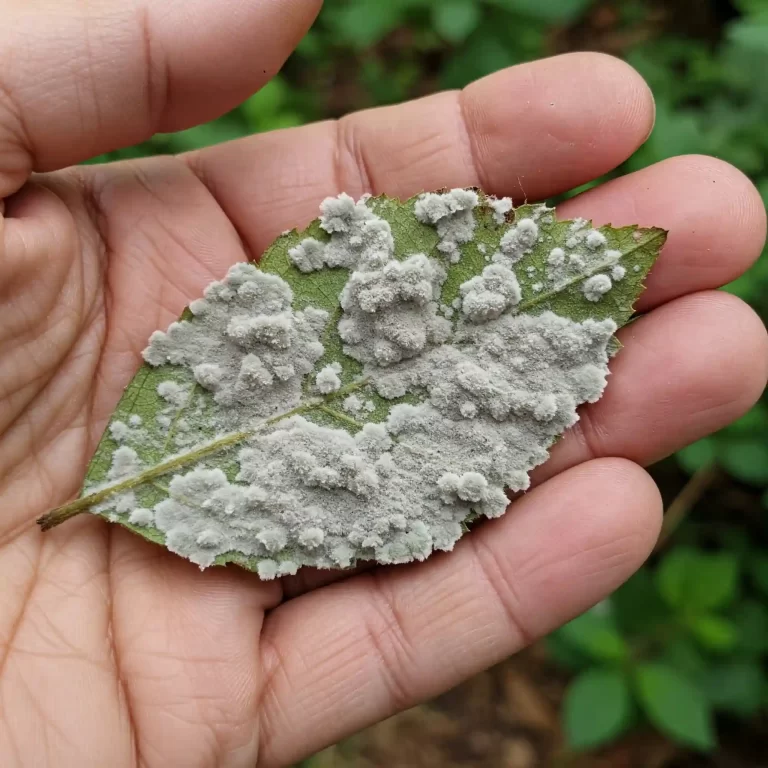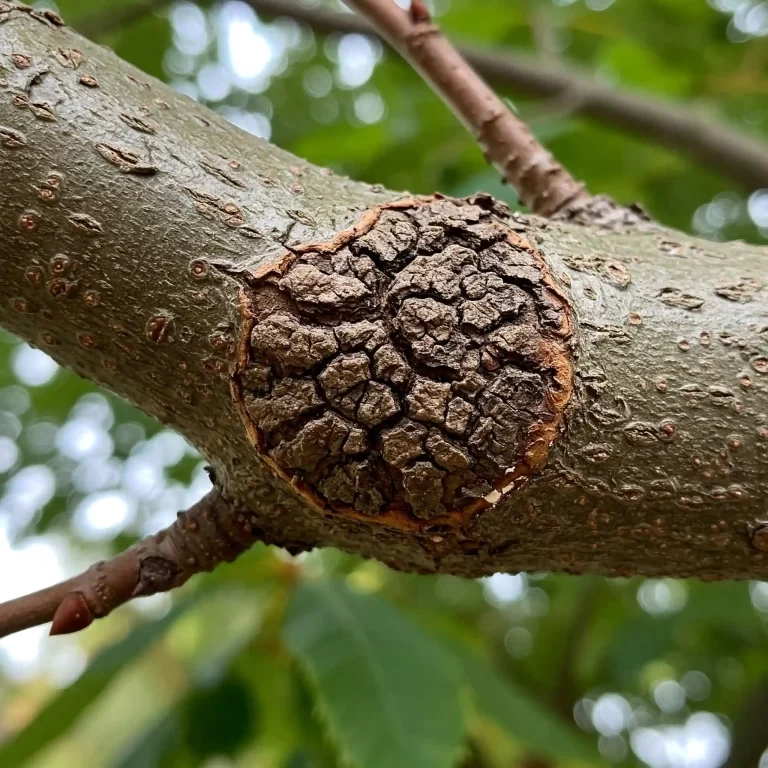Brown soft scale is a common pest that can wreak havoc on your garden. These tiny insects feed on the sap of your plants, causing them to weaken and become more susceptible to diseases. If left unchecked, brown soft scale infestations can lead to significant damage, affecting the health and appearance of your beloved plants.
Imagine spending countless hours nurturing your garden, only to see your plants covered in sticky honeydew and black sooty mold. The sight of wilting leaves and stunted growth can be disheartening, especially when you don’t know how to tackle the problem effectively. The frustration of dealing with persistent pests can make gardening feel like an uphill battle.
But don’t worry! In this comprehensive guide, we’ll explore 10 effective ways to manage brown soft scale in your garden. From identifying the pest to implementing natural and chemical control methods, we’ve got you covered. By the end of this article, you’ll have the knowledge and tools to keep your garden healthy and thriving, free from the menace of brown soft scale.
Understanding Brown Soft Scale
What is Brown Soft Scale?
Brown soft scale, scientifically known as Coccus hesperidum, is a soft scale insect belonging to the family Coccidae. These pests are oval and dome-shaped, measuring about 3 to 5 mm in length. They are typically pale yellowish-brown or greenish-brown with brown irregular speckles. Brown soft scale insects are known for their ability to infest a wide range of plants, including citrus, loquat, papaya, rubber trees, and orchids.
Life Cycle of Brown Soft Scale
The life cycle of brown soft scale consists of several stages: eggs, nymphs, and adults. Understanding the life cycle is crucial for effective pest management.
- Eggs: Female brown soft scales are ovoviviparous, meaning they produce eggs that hatch within their bodies. Each female can produce up to 250 eggs in her lifetime. The eggs hatch into tiny nymphs, also known as crawlers.
- Nymphs: The nymphs are mobile and move around the plant in search of suitable feeding sites. They insert their piercing-sucking mouthparts into the plant tissue and begin feeding on the sap. As they feed, they secrete honeydew, a sticky substance that can attract ants and lead to the growth of sooty mold.
- Adults: After several molts, the nymphs develop into adult females. Unlike the nymphs, adult females are immobile and remain attached to the plant. They continue to feed and produce honeydew, contributing to the overall infestation.
Common Host Plants
Brown soft scale has a wide host range and can infest various plants, both indoors and outdoors. Some common host plants include:
- Citrus Plants: Citrus trees, such as oranges, lemons, and grapefruits, are particularly susceptible to brown soft scale infestations. The pests can cause significant damage to the fruit and foliage, affecting the overall health of the tree.
- Indoor Plants: Brown soft scale is a common pest of indoor plants, including Ficus, Schefflera, and English ivy. These plants provide a suitable environment for the pests to thrive, especially in warm and humid conditions.
- Greenhouse Crops: Greenhouse crops, such as tomatoes, cucumbers, and peppers, can also be affected by brown soft scale. The controlled environment of a greenhouse can facilitate the rapid spread of the pest, leading to severe infestations.
Identifying Brown Soft Scale Infestations
Signs and Symptoms
Identifying brown soft scale infestations early is crucial for effective management. Here are some common signs and symptoms to look out for:
- Sticky Honeydew: One of the most noticeable signs of a brown soft scale infestation is the presence of sticky honeydew on the leaves and stems of the plant. Honeydew is a sugary substance excreted by the pests as they feed on the plant sap.
- Sooty Mold: Honeydew can attract sooty mold, a black fungus that grows on the sticky substance. Sooty mold can cover the leaves and stems, reducing photosynthesis and affecting the overall health of the plant.
- Wilting and Yellowing Leaves: Brown soft scale feeding can cause the leaves to wilt and turn yellow. This is due to the loss of sap and nutrients, which weakens the plant and makes it more susceptible to other diseases.
- Stunted Growth: Infested plants may exhibit stunted growth and reduced vigor. The continuous feeding by brown soft scale can drain the plant’s energy, leading to poor growth and development.
Differentiating from Other Pests
It’s important to differentiate brown soft scale from other common garden pests to ensure accurate identification and effective management. Here are some key differences:
- Aphids: Aphids are small, soft-bodied insects that also feed on plant sap. Unlike brown soft scale, aphids are usually more mobile and can be found in clusters on the undersides of leaves. They come in various colors, including green, black, and red.
- Mealybugs: Mealybugs are covered in a white, powdery wax and have a distinct appearance. They are often found in the leaf axils and on the stems of plants. Mealybugs also produce honeydew, but their waxy coating sets them apart from brown soft scale.
- Whiteflies: Whiteflies are tiny, white-winged insects that fly around when disturbed. They are usually found on the undersides of leaves and can cause similar damage to brown soft scale. However, their flying behavior and appearance make them easy to distinguish.
Impact of Brown Soft Scale on Plants
Damage Caused by Brown Soft Scale
Brown soft scale can cause significant damage to plants, affecting their growth, health, and overall appearance. Here are some of the ways brown soft scale can harm your plants:
- Sap Loss: Brown soft scale feeds on the sap of plants, which is essential for their growth and development. The continuous feeding can lead to a significant loss of sap, weakening the plant and making it more susceptible to other pests and diseases.
- Reduced Photosynthesis: The presence of sooty mold on the leaves can block sunlight and reduce photosynthesis. This affects the plant’s ability to produce energy, leading to stunted growth and poor health.
- Fruit and Flower Damage: In fruit-bearing plants, brown soft scale can cause damage to the fruit, leading to reduced yield and quality. The pests can also affect the development of flowers, impacting the plant’s reproductive success.
Secondary Issues
In addition to the direct damage caused by brown soft scale, there are several secondary issues that can arise from an infestation:
- Honeydew and Sooty Mold: As mentioned earlier, the honeydew excreted by brown soft scale can attract sooty mold. This black fungus can cover the leaves and stems, reducing photosynthesis and affecting the overall health of the plant.
- Ant Attraction: Honeydew can attract ants, which feed on the sugary substance. Ants can protect brown soft scale from natural predators, making it more difficult to control the infestation.
- Increased Susceptibility to Diseases: Weakened plants are more susceptible to other pests and diseases. Brown soft scale infestations can make plants more vulnerable to fungal and bacterial infections, further compromising their health.
Natural Predators and Biological Control
Beneficial Insects
One of the most effective ways to manage brown soft scale is by encouraging the presence of natural predators in your garden. Here are some beneficial insects that can help control brown soft scale populations:
- Ladybugs: Ladybugs are voracious predators of soft scale insects, including brown soft scale. They can consume large numbers of pests, helping to keep the population in check.
- Parasitic Wasps: Parasitic wasps, such as Metaphycus helvolus, lay their eggs inside brown soft scale insects. The developing wasp larvae feed on the scale insects, eventually killing them.
- Lacewings: Lacewing larvae are known for their appetite for soft scale insects. They can be effective in reducing brown soft scale populations in your garden.
Biological Control Methods
In addition to encouraging natural predators, there are several biological control methods that can be used to manage brown soft scale:
- Release of Beneficial Insects: You can purchase and release beneficial insects, such as ladybugs and parasitic wasps, in your garden. This can help boost the population of natural predators and control brown soft scale infestations.
- Neem Oil: Neem oil is a natural insecticide that can be effective against brown soft scale. It works by disrupting the feeding and reproductive processes of the pests, reducing their population over time.
- Horticultural Oils: Horticultural oils, such as mineral oil and vegetable oil, can be used to smother brown soft scale insects. These oils are safe for plants and can be applied as a foliar spray.
Chemical Control Methods
Insecticidal Soaps and Horticultural Oils
Insecticidal soaps and horticultural oils are commonly used to control brown soft scale. Here are some tips for using these products effectively:
- Application: Apply insecticidal soaps and horticultural oils directly to the infested areas of the plant. Make sure to cover all surfaces, including the undersides of leaves, where brown soft scale may be hiding.
- Timing: Apply these products during the early morning or late evening to avoid damaging the plant. Avoid applying them during hot, sunny weather, as this can cause leaf burn.
- Frequency: Repeat applications may be necessary to achieve effective control. Follow the manufacturer’s instructions for reapplication intervals to ensure the best results.
- Safety: Insecticidal soaps and horticultural oils are generally safe for use on most plants. However, it’s always a good idea to test a small area of the plant first to ensure there are no adverse reactions.
Systemic Insecticides
Systemic insecticides, such as imidacloprid, can be highly effective in controlling brown soft scale. These insecticides are absorbed by the plant and transported throughout its tissues, providing long-lasting protection against pests.
- Application Methods: Systemic insecticides can be applied as a soil drench, foliar spray, or granular formulation. The method of application will depend on the specific product and the type of plant being treated.
- Effectiveness: Systemic insecticides are particularly effective against brown soft scale because they target the pests as they feed on the plant sap. This ensures that even hidden or hard-to-reach insects are affected.
- Safety Considerations: While systemic insecticides can be very effective, they should be used with caution. Follow the manufacturer’s instructions carefully and avoid overuse, as this can lead to pesticide resistance and harm beneficial insects.
Integrated Pest Management (IPM)
Principles of IPM
Integrated Pest Management (IPM) is a holistic approach to pest control that combines multiple strategies to achieve effective and sustainable results. The principles of IPM include:
- Monitoring and Identification: Regularly inspect your plants for signs of pests and accurately identify the species present. This helps in choosing the most appropriate control methods.
- Prevention: Implement cultural practices that promote plant health and reduce the risk of pest infestations. This includes proper watering, fertilization, and pruning.
- Control Methods: Use a combination of biological, chemical, and mechanical control methods to manage pests. This reduces the reliance on any single method and minimizes the risk of resistance.
- Evaluation: Continuously evaluate the effectiveness of your pest management strategies and make adjustments as needed. This ensures that your approach remains effective over time.
Combining Control Methods
Combining different control methods is a key aspect of IPM. Here are some tips for integrating natural, biological, and chemical controls to manage brown soft scale:
- Natural Controls: Encourage the presence of natural predators, such as ladybugs and parasitic wasps, by planting a diverse range of plants and avoiding broad-spectrum insecticides.
- Biological Controls: Use biological control agents, such as neem oil and horticultural oils, to target brown soft scale without harming beneficial insects.
- Chemical Controls: Apply insecticidal soaps and systemic insecticides as needed, following the manufacturer’s instructions and safety guidelines.
- Cultural Practices: Maintain plant health through proper care, including regular watering, fertilization, and pruning. Healthy plants are more resistant to pest infestations.
Preventing Brown Soft Scale Infestations
Regular Monitoring and Inspection
Regular monitoring and inspection of your plants are crucial for early detection and prevention of brown soft scale infestations. Here are some tips for effective monitoring:
- Inspect Plants Regularly: Check your plants at least once a week for signs of brown soft scale. Pay close attention to the undersides of leaves, stems, and new growth.
- Use a Magnifying Glass: Brown soft scale insects are small and can be difficult to see with the naked eye. A magnifying glass can help you spot the pests more easily.
- Look for Honeydew and Sooty Mold: The presence of sticky honeydew and black sooty mold is a clear indicator of a brown soft scale infestation. Be on the lookout for these signs during your inspections.
Cultural Practices
Implementing proper cultural practices can help prevent brown soft scale infestations and promote overall plant health. Here are some best practices to follow:
- Watering: Water your plants regularly and deeply to ensure they receive adequate moisture. Avoid overwatering, as this can create a favorable environment for pests.
- Fertilization: Provide your plants with the necessary nutrients through regular fertilization. Use a balanced fertilizer that meets the specific needs of your plants.
- Pruning: Prune your plants regularly to remove dead or damaged branches and improve air circulation. This helps reduce the risk of pest infestations and promotes healthy growth.
- Sanitation: Keep your garden clean and free of debris, as this can harbor pests and diseases. Remove fallen leaves, dead plants, and other organic matter regularly.
Case Studies and Real-Life Examples
Success Stories from Gardeners
Real-life examples of successful brown soft scale management can provide valuable insights and inspiration. Here are a few success stories from experienced gardeners:
- Case Study 1: A gardener in California successfully managed a brown soft scale infestation on their citrus trees by combining natural predators and horticultural oils. They released ladybugs and applied neem oil regularly, resulting in a significant reduction in the pest population.
- Case Study 2: An indoor plant enthusiast in New York used insecticidal soaps and regular monitoring to control brown soft scale on their Ficus plants. By inspecting their plants weekly and applying insecticidal soap as needed, they were able to keep the infestation under control.
- Case Study 3: A greenhouse owner in Florida implemented an IPM approach to manage brown soft scale on their tomato plants. They used a combination of biological controls, such as parasitic wasps, and cultural practices, such as proper watering and pruning, to achieve effective pest management.
Expert Opinions
Insights from horticulturists and pest control experts can provide valuable recommendations for managing brown soft scale. Here are some expert opinions on effective pest management strategies:
- Horticulturist Jane Smith: “Regular monitoring and early detection are key to managing brown soft scale. By inspecting your plants regularly and taking action at the first sign of an infestation, you can prevent the pests from spreading and causing significant damage.”
- Pest Control Expert John Doe: “Integrated Pest Management (IPM) is the most effective approach to managing brown soft scale. By combining natural, biological, and chemical controls, you can achieve sustainable pest management and protect your plants from future infestations.”
Frequently Asked Questions (FAQs)
Common Questions About Brown Soft Scale
Here are some frequently asked questions about brown soft scale, along with detailed answers:
- What is brown soft scale?
- Brown soft scale is a soft scale insect that feeds on the sap of plants. It is known for its oval, dome-shaped appearance and can infest a wide range of plants, including citrus, indoor plants, and greenhouse crops.
- How do I identify brown soft scale?
- Brown soft scale can be identified by its pale yellowish-brown or greenish-brown color and irregular brown speckles. Look for sticky honeydew and black sooty mold on the leaves and stems of infested plants.
- What damage does brown soft scale cause?
- Brown soft scale can cause significant damage to plants by feeding on their sap. This can lead to wilting, yellowing leaves, stunted growth, and reduced fruit and flower production. The presence of honeydew and sooty mold can further affect plant health.
- How can I control brown soft scale naturally?
- Natural control methods include encouraging the presence of beneficial insects, such as ladybugs and parasitic wasps, and using biological control agents, such as neem oil and horticultural oils.
- Are chemical controls effective against brown soft scale?
- Yes, chemical controls, such as insecticidal soaps and systemic insecticides, can be effective against brown soft scale. However, they should be used with caution and in combination with other control methods for the best results.
Conclusion
In conclusion, managing brown soft scale in your garden requires a comprehensive approach that combines natural, biological, and chemical control methods. By regularly monitoring your plants, implementing proper cultural practices, and using a combination of control strategies, you can effectively manage brown soft scale infestations and maintain a healthy, thriving garden. Remember to stay vigilant and take action at the first sign of an infestation to prevent the pests from spreading and causing significant damage. Happy gardening!




